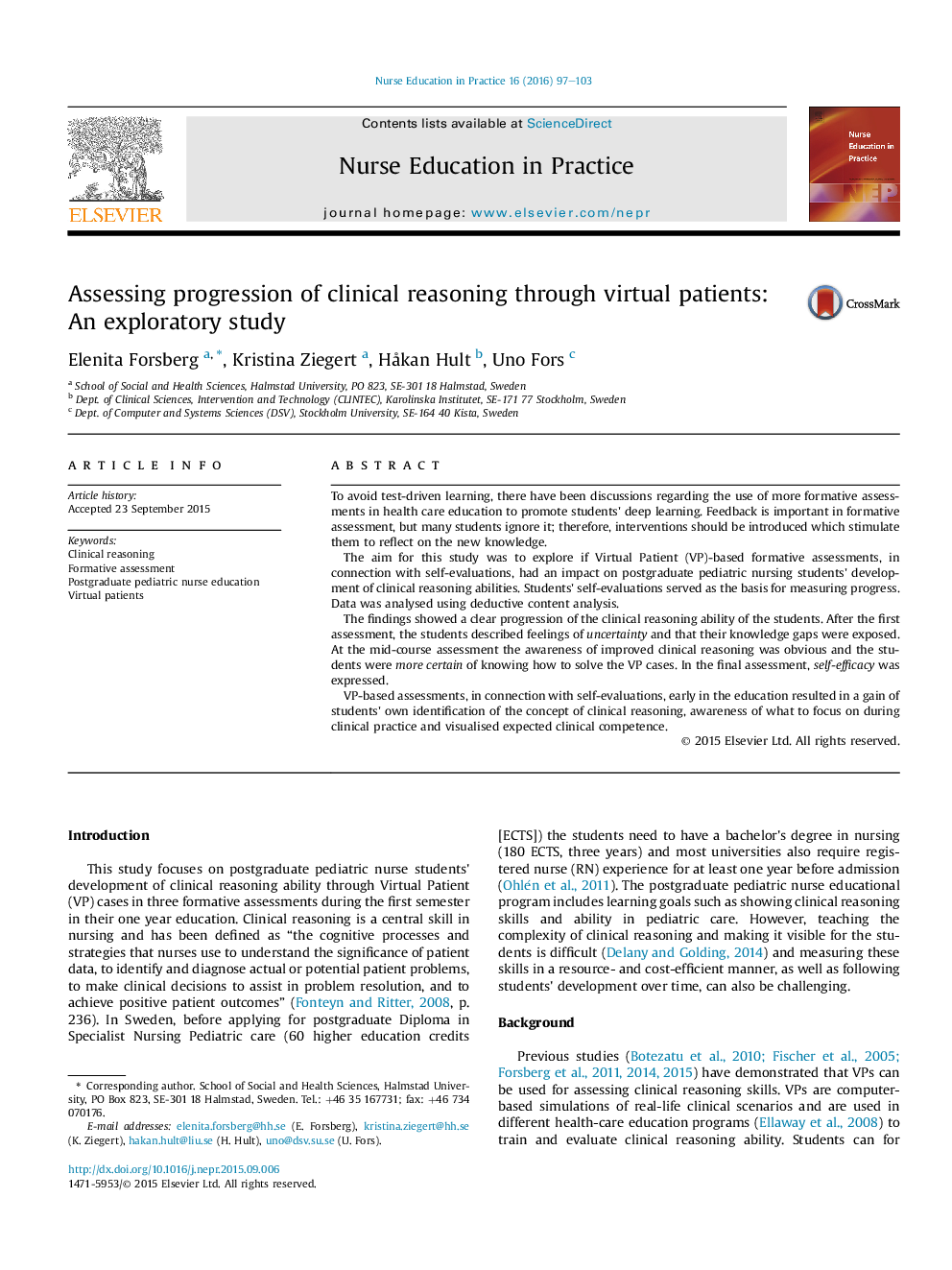| Article ID | Journal | Published Year | Pages | File Type |
|---|---|---|---|---|
| 366810 | Nurse Education in Practice | 2016 | 7 Pages |
•Virtual Patient-based assessments elucidate students' progression of clinical reasoning.•Students' clinical reasoning process changed from uncertainty to self-efficacy.•Virtual Patient-based assessments with self-evaluations visualised expected clinical competence.•Virtual Patient-based assessments bridge gaps in students' clinical reasoning abilities.
To avoid test-driven learning, there have been discussions regarding the use of more formative assessments in health care education to promote students' deep learning. Feedback is important in formative assessment, but many students ignore it; therefore, interventions should be introduced which stimulate them to reflect on the new knowledge.The aim for this study was to explore if Virtual Patient (VP)-based formative assessments, in connection with self-evaluations, had an impact on postgraduate pediatric nursing students' development of clinical reasoning abilities. Students' self-evaluations served as the basis for measuring progress. Data was analysed using deductive content analysis.The findings showed a clear progression of the clinical reasoning ability of the students. After the first assessment, the students described feelings of uncertainty and that their knowledge gaps were exposed. At the mid-course assessment the awareness of improved clinical reasoning was obvious and the students were more certain of knowing how to solve the VP cases. In the final assessment, self-efficacy was expressed.VP-based assessments, in connection with self-evaluations, early in the education resulted in a gain of students' own identification of the concept of clinical reasoning, awareness of what to focus on during clinical practice and visualised expected clinical competence.
